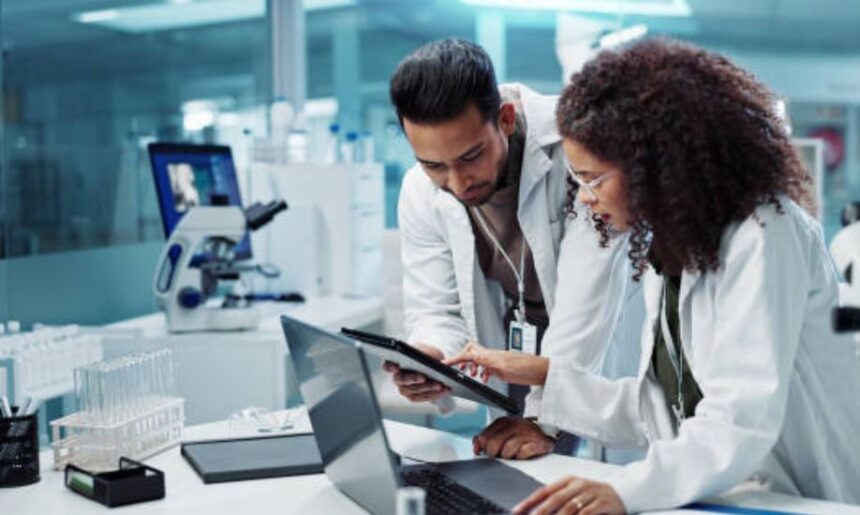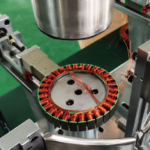Science laboratory technology courses are pivotal in equipping students with the knowledge and practical skills needed to work in scientific and industrial laboratories. These courses are designed to prepare individuals for careers in various scientific fields, including biology, chemistry, physics, and environmental science. By combining theoretical knowledge with hands-on training, science laboratory technology courses play a vital role in advancing scientific research and innovation.
Understanding Science Laboratory Technology Courses
Science laboratory technology courses are specialized programs focusing on the methodologies, techniques, and tools used in scientific laboratories. These courses provide a foundational understanding of laboratory protocols, equipment handling, and safety measures. Students learn to analyze samples, conduct experiments, and maintain laboratory instruments to ensure accurate results.
Key Features of Science Laboratory Technology Courses
- Comprehensive Curriculum: These courses cover diverse topics such as microbiology, analytical chemistry, molecular biology, and environmental testing.
- Practical Training: Emphasis is placed on hands-on experience with laboratory instruments like spectrometers, chromatographs, and centrifuges.
- Safety Protocols: Students learn essential safety procedures to handle hazardous materials and prevent accidents.
- Data Analysis: Training in interpreting and presenting scientific data using advanced software tools.
Benefits of Enrolling in Science Laboratory Technology Courses
Enrolling in science laboratory technology courses offers numerous advantages for aspiring scientists and laboratory professionals. Here are some key benefits:
Career Opportunities
Graduates can pursue careers in pharmaceuticals, healthcare, environmental agencies, research institutions, and academic laboratories. Positions include laboratory technician, quality control analyst, research assistant, and more.
Skill Development
These courses enhance technical skills such as sample preparation, equipment calibration, and experimental design. Students also develop critical thinking and problem-solving abilities.
Industry Demand
The growing need for skilled laboratory professionals in industries like biotechnology, food science, and forensic science makes these courses highly valuable.
Foundation for Further Studies
Science laboratory technology courses provide a strong foundation for advanced studies in scientific disciplines, paving the way for specialization and higher qualifications.
Core Subjects in Science Laboratory Technology Courses
Science laboratory technology courses encompass a variety of subjects tailored to specific scientific fields. Here are some common core subjects:
General Laboratory Techniques
Students learn the basics of laboratory operations, including equipment maintenance, sample collection, and standard operating procedures.
Analytical Chemistry
This subject focuses on chemical analysis methods, such as titration, chromatography, and spectroscopy, essential for research and quality control.
Microbiology
Microbiology involves the study of microorganisms and their applications in medicine, agriculture, and biotechnology.
Molecular Biology
Students explore genetic analysis techniques like PCR, gel electrophoresis, and DNA sequencing, which are crucial in genetic research and diagnostics.
Environmental Science
This area covers laboratory methods for monitoring and analyzing environmental parameters like water quality, soil composition, and air pollution.
Career Paths After Completing Science Laboratory Technology Courses
Graduates of science laboratory technology courses can explore various career paths based on their interests and expertise. Some popular options include:
Laboratory Technician
Laboratory technicians work in research facilities, conducting experiments, analyzing samples, and maintaining lab equipment.
Quality Control Analyst
Quality control analysts ensure that products meet industry standards by performing rigorous testing and analysis.
Research Assistant
Research assistants support scientists in conducting experiments, collecting data, and preparing reports.
Environmental Analyst
Environmental analysts assess environmental samples to monitor pollution levels and support sustainability initiatives.
Forensic Scientist
Forensic scientists analyze evidence from crime scenes to assist in criminal investigations.
How to Choose the Right Science Laboratory Technology Course
Selecting the right course is crucial for achieving your career goals. Consider the following factors:
Accreditation
Ensure the course is accredited by a recognized educational or professional body, which enhances its credibility.
Curriculum
Review the curriculum to confirm it aligns with your career interests and includes practical training components.
Facilities
Choose institutions with state-of-the-art laboratory facilities and access to advanced equipment.
Industry Connections
Institutions with strong industry partnerships often provide better internship and job placement opportunities.
The Future of Science Laboratory Technology
Science laboratory technology continues to evolve with advancements in technology and scientific discovery. Emerging fields like nanotechnology, biotechnology, and renewable energy rely heavily on skilled laboratory professionals. By staying updated with the latest trends and acquiring new skills, graduates can remain competitive in the job market.
Conclusion
Science laboratory technology courses are integral for those aspiring to build a career in scientific research and industry. These programs offer a balanced mix of theoretical knowledge and practical expertise, preparing students for various roles in the science and technology sector. With the growing demand for skilled laboratory professionals, these courses provide a pathway to a rewarding and impactful career.






